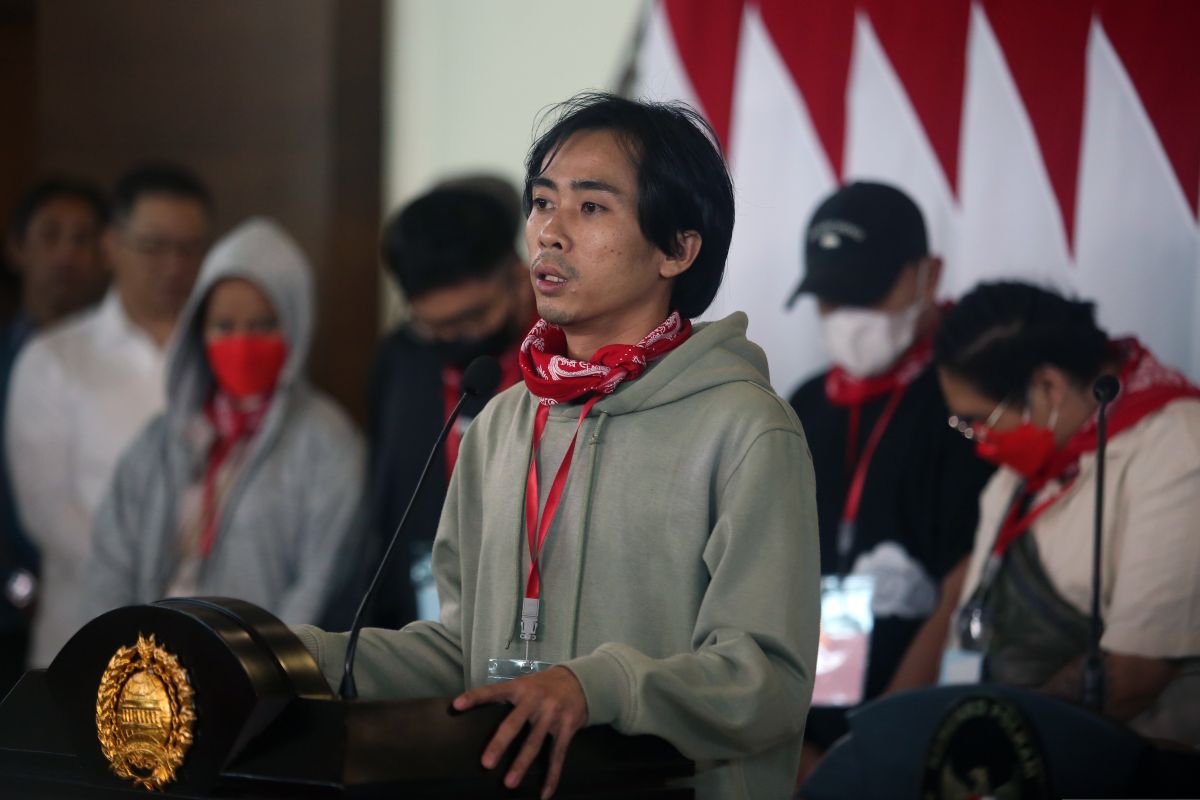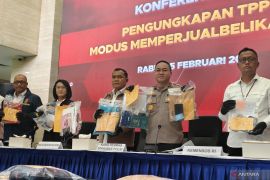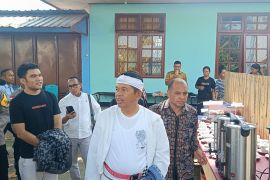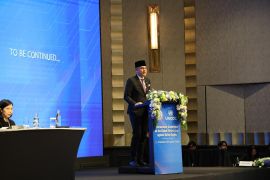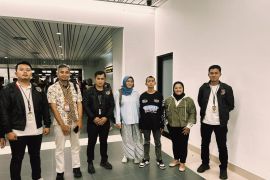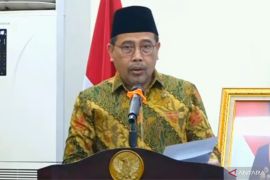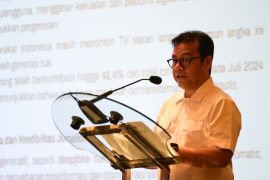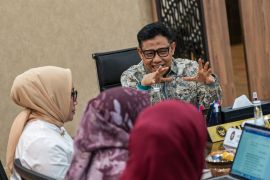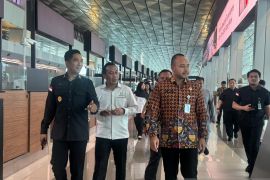“I was surprised but happy. I still cannot believe how I managed to return to Indonesia,” Fajrian said when contacted by ANTARA on Thursday (March 20).
He recounted first learning about a job opportunity abroad through a Facebook post. The offer was for an administrative staff position at a restaurant in Maesot, Thailand.
Struggling to find work in the country, Fajrian was tempted by the job offer, which promised a high salary, adequate facilities, and a comfortable working environment in Thailand.
After applying and contacting the job recruiter, he was asked to connect with four other administrative staff via Telegram.
“After I contacted those four staff, I was offered a high salary, adequate facilities, and a healthy work environment. Everything they described seemed positive, which tempted me to come illegally to Thailand to work,” he recounted.
Although he realized that the job offer involved illegal work abroad, he ultimately agreed to accept it because it was appealing.
After reaching an agreement with the agent who would send him to work in Thailand, Fajrian, along with 11 others from various regions, including his cousin, departed together from Soekarno-Hatta Airport in Tangerang on August 13, 2024, for Bangkok.
Upon arriving in Bangkok, Fajrian and the others were taken on a 6-7-hour road trip with up to four different cars from Bangkok to Maesot.
Upon arrival in Maesot, he felt confused because the area lacked tall buildings. Instead, it was a remote area that was not busy and mostly made up of forests.
“There, we tried to think positively; maybe this city is not too developed, that is why they need migrant workers from abroad,” he remarked.
However, over time, he observed that the route they took seemed unusual, particularly because upon reaching Maesot, they paused in a supermarket parking lot. Subsequently, they switched vehicles, moving from one car to another.
His group was taken to an orange orchard surrounded by small rivers. Once they reached the orchard, they were ferried across the river aboard a small boat until they saw many soldiers.
“We do not know if they were rebel soldiers or what. The point is that many were armed. About 10 or 15 soldiers seemed to watch us as we crossed the river. After we crossed, we were taken back into a car,” he recalled.
They continued their journey, followed by a car carrying soldiers, through valleys and mountains until they arrived at the company where they were supposed to work.
Upon arrival at the company, Fajrian and the others were inspected, and their communication devices were confiscated.
“However, some friends hid their phones. Even now, they still have their phones because they managed to hide them, but mine was seized and has not been returned until now,” he explained.
Following the inspection, he was compelled to sign a contract committing to work for 14 hours a day for a duration of 1 year and 6 months, with a target revenue for the company set at up to US$200 thousand.
“If we do not reach US$200 thousand within 1 year and 6 months, the contract will be extended until we can meet that figure,” he remarked.
Fajrian acknowledged having initially declined to sign the contract. However, the company's management threatened them with poor treatment if they did not comply.
Under duress, he and the other victims ultimately agreed to sign the contract.
After starting work, he was coerced into scamming people from countries such as Russia and Turkey through a love scam scheme.
“So, we made these people fall in love with the patterns we use. After that, we drained their money, deceiving them with online links we provided,” he remarked.
In addition to working over 14 hours each day, he endured mistreatment in the form of beatings, electrocution, and confinement in a dark room without food for days if the company’s targets were not achieved.
“After coming out of that jail, we could not rest; we had to work again. We worked until the end of the workday, and only then could we rest,” he recalled.
After discovering that his son had been scammed and tortured through covert messages sent via a friend's phone, Fajrian's father, Rudiyanto, reported the incident to the Indonesian Embassy (KBRI) in Bangkok.
After sharing this information with the KBRI, Rudiyanto received a reply indicating that his son was located in Myawaddy, Myanmar, where the conflict hindered evacuation efforts in the area.
Government efforts
Indonesian Foreign Ministry's Director of Protection for Indonesian Citizens and Indonesian Legal Entities, Judha Nugraha, stated that his side closely coordinated with Thai authorities to facilitate the repatriation of those Indonesian citizens.
The ministry also coordinated with Myanmar authorities to verify that no Indonesian citizens remain stranded in Myawaddy.
Following extensive efforts, the government successfully rescued a total of 569 Indonesian citizens who had been trafficked to work as online scammers in Myawaddy and repatriated them in two waves on March 18-19, 2025.
Deputy Minister for the Protection of Indonesian Migrant Workers (P2MI) Christina Aryani acknowledged that the release process was not easy due to their location in a conflict area, presenting challenges to the KBRI team.
Meanwhile, P2MI Minister Abdul Kadir Karding highlighted the importance of enhancing the recruitment process for migrant workers to better prevent and protect Indonesian citizens aspiring to work abroad.
Karding also repeatedly reminded the public intending to work abroad to be cautious of enticing offers of high salaries, advising them to follow official procedures and register with authorized placement companies to ensure their protection.
Related news: Evacuation of 569 citizens from Myanmar signifies diplomacy's success
Related news: Govt confirms 554 Indonesians rescued from Myanmar online scam gangs
Editor: Rahmad Nasution
Copyright © ANTARA 2025
